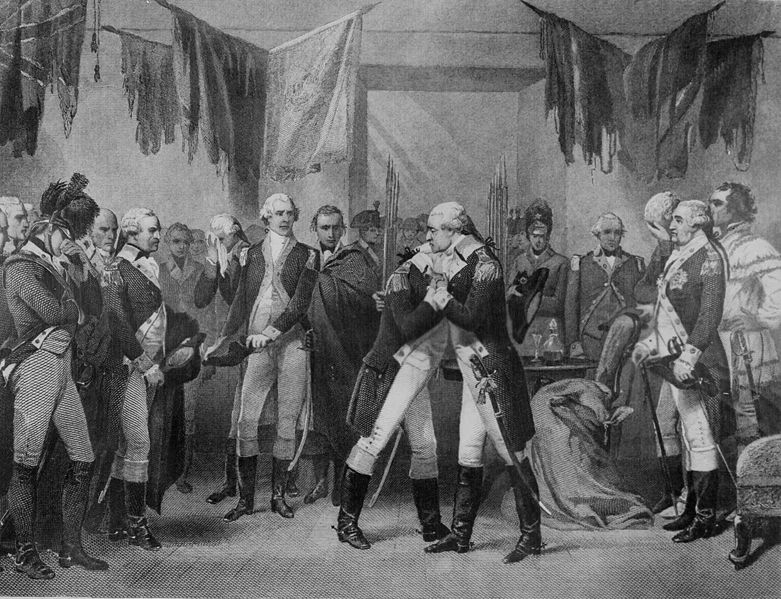About Publications Library Archives
heritagepost.org

Preserving Revolutionary & Civil War History

Preserving Revolutionary & Civil War History

Author: George Washington
Date:1796
Annotation:
By 1796 Washington was in a position to retire gracefully. He had avoided war with Britain, pushed the British out of western forts, suppressed Native Americans in the Old Northwest, and opened the Ohio country to white settlement. In a farewell address, published in a Philadelphia newspaper in September 1796, Washington announced his retirement and offered his countrymen “the disinterested warnings of a parting friend.” In his address, the president complained bitterly about “the baneful effects of the Spirit of Party,” and warned his countrymen against the growth of partisan divisions. In foreign affairs, he also warned against long-term alliances. Declaring the “primary interests” of America and Europe to be fundamentally different, he argued that “it is our true policy to steer clear of permanent alliance with any portion of the foreign world.”
Among Washington’s main themes were the danger that political demagogues would manipulate sectional passions and the importance of subordinating regional interests to the preservation of the Union.
Document:
…A solicitude for your welfare, which cannot end but with my life…urge me…to offer..the disinterested warnings of a parting friend, who can possibly have no personal motive to bias his counsels….
The Unity of Government which constitutes you one people…is a main Pillar in the Edifice of your real independence…your tranquility at home; your peace abroad…. But as it is easy to foresee, that, from different causes, and from different quarters, much pains will be taken, many artifices employed, to weaken in your minds the conviction of this truth…. You should properly estimate the immense value of your national Union to your collective and individual happiness…indignantly frowning upon the first dawning of every attempt to alienate any portion of our Country from the rest, or to enfeeble the sacred ties which now link together the various parts….
The North, in an unrestrained intercourse with the South…finds in the productions of the latter great additional resources of maritime and commercial enterprise–and precious materials of manufacturing industry.–The South, in the same intercourse, benefiting by the agency of the North, sees its agriculture grow and its commerce expand….
In contemplating the causes which may disturb our Union, it occurs as a matter of serious concern, that any ground should have been furnished for characterizing parties by Geographical discriminations–Northern and Southern–Atlantic and Western; whence designing men may endeavor to excite a belief, that there is a real difference of local interests and views….
Towards the preservation of your Government and the permanency of your present happy state, it is requisite, not only that you steadily discountenance irregular oppositions to its acknowledged authority, but also that you resist with care the spirit of innovation upon its principles, however specious the pretexts….
I have already intimated to you the danger of parties in the State, with particular reference to founding them on geographical discriminations. Let me now take a more comprehensive view, and warn you, in the most solemn manner, against the baneful effects of the spirit of party, generally.
This spirit, unfortunately, is inseparable from our nature, having its root in the strongest passions of the human mind. It exists under different shapes, in all governments, more or less stifled, controlled or repressed; but in those of the popular form, it is seen in its greatest rankness, and is truly their worst enemy.
The alternate dominion of one faction over another, sharpened by the spirit of revenge, natural to party dissension, which, in different ages and countries, has perpetrated the most horrid enormities, is itself a frightful despotism; but this leads at length to a more formal and permanent despotism. The disorders and miseries which result, gradually incline the minds of men to seek security and repose in the absolute power of an Individual….
‘T is substantially true, that virtue or morality is a necessary spring of popular government….
Promote, then, as an object of primary importance, institutions for the general diffusion of knowledge. In proportion as the structure of a government gives force to public opinion, it is essentially that public opinion should be enlightened….
Observe good faith and justice towards all Nations. Cultivate peace and harmony with all….
Nothing is more essential than that permanent, inveterate antipathies against particular nations and passionate attachments for others should be excluded…. The Nation, which indulges towards another an habitual hatred or an habitual fondness, is in some degree a slave. It is a slave to its animosity or to its affection, either of which is sufficient to lead it astray from its duty and its interest….
Against the insidious wiles of foreign influence…the jealousy of a free people ought to be constantly awake, since history and experience prove that foreign influence is one of the most baneful foes of republic Government….
The great rule of conduct for us, in regard to foreign Nations, is, in extending our commercial relations, to have with them as little Political connection as possible….
‘T is our true policy to steer clear of permanent alliances, with any portion of the foreign world….
Taking care always to keep ourselves, by suitable establishments, on a respectable defensive posture, we may safely trust to temporary alliances for extraordinary emergencies….
Source: Gilder Lehrman Institute